Bulk sage refers to purchasing sage in larger quantities, typically for cost savings and convenience. This guide explains how to select quality bulk sage, store it properly, and use it creatively in cooking and beyond. According to the USDA, dried herbs like sage can last up to two years when stored correctly (FDA Shelf-Stable Food Guidelines).
In this post, we’ll walk you through everything from selecting quality bulk sage to storing it properly and using it creatively beyond the obvious herb-roasted turkey recipe. Whether you're a seasoned chef or a home cook with a spice rack full of potential, this guide will make you a sage-savvy savant.
Table of Contents
- Why Buy Sage in Bulk?
- The Evolution of Bulk Sage Purchasing
- How to Choose the Best Bulk Sage
- Storage Hacks for Long-Lasting Aroma
- Creative Uses and Context Boundaries
- Buying Guide for Bulk Sage
- FAQ Section
- Conclusion
Why Buy Sage in Bulk?
Bulk herbs like sage might not be the flashiest item on your pantry shelf, but they pack a punch when used right. Here’s why you should consider stocking up:
- Economical: Buying sage in bulk typically costs less per ounce than pre-packaged versions. University of Michigan research shows consumers save 20-30% on dried herbs through bulk purchasing due to reduced packaging costs (Center for Sustainable Systems, 2021).
- Eco-Friendly: Less packaging means less waste — perfect for sustainability lovers.
- Versatile: With more sage on hand, you’re more likely to experiment and try new recipes.
- Long Shelf Life: When stored properly, dried sage can last up to two years without losing much potency.
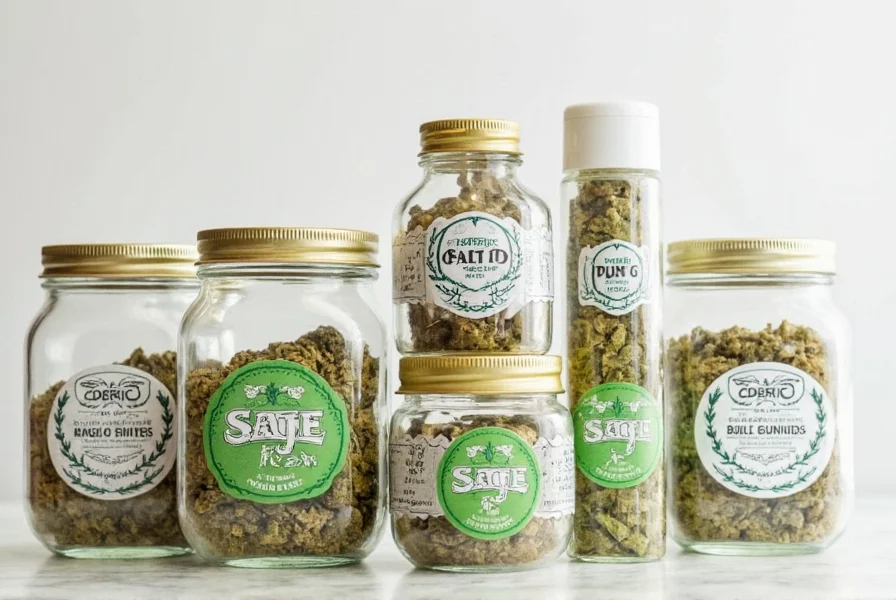
The Evolution of Bulk Sage Purchasing
Bulk herb acquisition has transformed from necessity to conscious choice. This timeline shows key developments in purchasing practices:
- Pre-1900s: Markets sold dried herbs by weight in reusable containers, minimizing waste. Apothecaries documented sage's medicinal use since Roman times (Journal of Ethnopharmacology, 2019).
- 1970s-1980s: Natural food co-ops revived bulk sections, focusing on organic products and reducing packaging. This era established quality standards still used today (National Cooperative Grocers Association).
- 2000s-Present: E-commerce enabled precise bulk measurements with sustainable shipping. Retailers now provide origin tracing and third-party quality certifications (Packaging Digest, 2022).
How to Choose the Best Bulk Sage
Not all bulk sage is created equal. If you’re purchasing loose, here’s what to look for:
| Quality Indicator | What to Look For | Evidence-Based Standard |
|---|---|---|
| Smell | Earthy, herbal, and aromatic | Should contain 1.5-2.5% essential oils (thujone/camphor) per European Pharmacopoeia |
| Color | Gray-green to light green | Faded brown indicates oxidation; verified by USDA color grading standards |
| Texture | Crisp and dry | Moisture content ≤ 10% per American Spice Trade Association guidelines |
| Foreign Matter | Minimal to none | ≤ 2% inert matter allowed under FDA food defect levels |
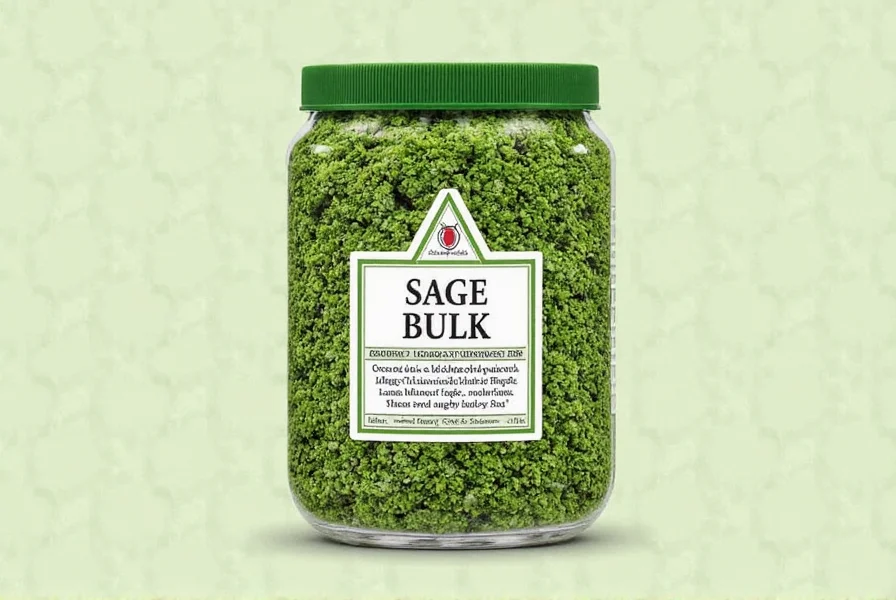
Storage Hacks for Long-Lasting Aroma
You wouldn’t buy premium olive oil only to leave it in the sun, right? Same goes for sage. Here’s how to keep your bulk sage tasting fresh:
1. Use Airtight Containers
Transfer your sage into glass jars or food-safe plastic containers with tight-fitting lids. This prevents moisture and air exposure that degrade flavor over time.
2. Keep It Cool and Dark
Store in a cool, dark cupboard away from heat sources. Excessive heat and sunlight cause essential oils to evaporate faster.
3. Label and Date
Add a label with the purchase date and expected shelf life. Most dried herbs are best within 1–2 years, though potency starts to decline after about 6 months.
4. Freeze for Maximum Freshness (Optional)
If you want to preserve flavor longer, freeze dried sage in vacuum-sealed bags. Ideal for long-term bulk storage.
5. Avoid Humidity
Moisture is the enemy of longevity. Consider placing a silica gel packet inside the container to absorb any ambient humidity.
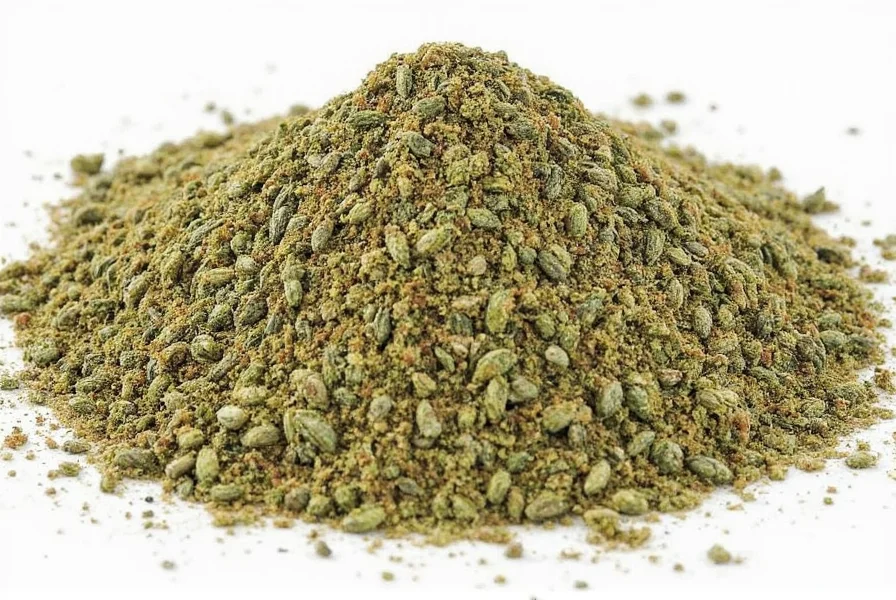
Creative Uses and Context Boundaries
Sage's versatility has limits. Understanding these context boundaries prevents culinary missteps while maximizing utility:
When Bulk Dried Sage Excels
- Long-Simmered Dishes: Stews, braises, and sauces where dried herbs have time to rehydrate (ideal ratio: 1 tsp dried = 1 tbsp fresh)
- Dry Rubs & Spice Blends: Uniform particle size ensures even flavor distribution in rubs
- Long-Term Storage Needs: When fresh sage isn't seasonally available
When Fresh Sage Is Essential
- Delicate Dishes: Italian saltimbocca requires fresh sage's tender texture (Italian Food Network)
- Raw Applications: Garnishes where dried sage's brittle texture is undesirable
- Precision Medicinal Use: NIH notes dried sage's thujone concentration varies significantly by batch, making fresh preferred for controlled therapeutic applications (NIH Sage Monograph)
1. Make Sage Butter
Toss chopped fresh or rehydrated dried sage into softened butter. Add a pinch of salt and black pepper. Perfect for sautéing vegetables, finishing grilled steak, or spreading on warm bread.
2. Infuse Oils or Vinegars
Create flavored oils by simmering crushed sage leaves in olive or grapeseed oil. Similarly, steep in apple cider vinegar for a tangy salad dressing base.
3. Bake with Sage
Add finely ground dried sage to savory scones, focaccia, or herb-infused shortbread cookies for an umami twist.
4. Blend into Spice Mixes
Make your own Italian or poultry seasoning blends. Combine sage with thyme, rosemary, marjoram, and black pepper for a custom rub or sprinkle.
5. Herbal Tea for Wellness
Sage tea has been traditionally used for sore throats and hormonal balance. Steep a teaspoon of dried sage in hot water for 10 minutes, strain, and add honey and lemon. According to the National Institutes of Health (NIH), consult a healthcare provider before using sage for therapeutic reasons.
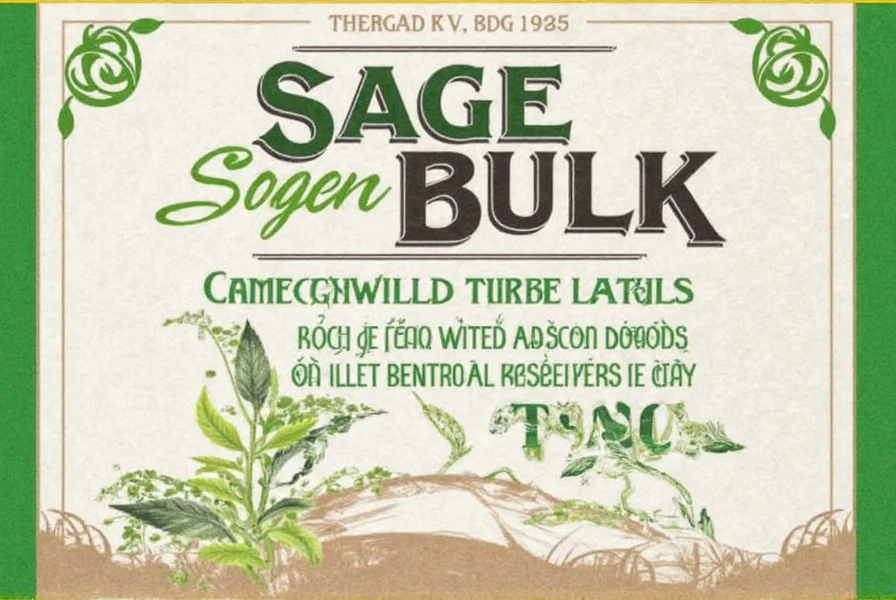
Buying Guide for Bulk Sage
Whether you’re shopping at a local co-op or ordering online, knowing what to look for helps ensure you get the most flavor and value out of your bulk sage purchase.
Key Features to Consider
- Organic Certification: Reduces exposure to pesticides and often indicates better growing practices.
- Country of Origin: Mediterranean-grown sage (especially from Turkey or Greece) tends to have more intense aroma.
- Drying Method: Sun-dried is traditional, while slow-dehydrated at low temps preserves more essential oils.
- Form: Whole leaves retain flavor longer; powdered sage works better for mixes and baked goods.
Top Bulk Sage Products Reviewed
Product Name: Mountain Rose Herbs Organic Sage
- Features: Certified organic, ethically sourced, whole dried leaves.
- Advantages: Trusted by professional chefs for over 20 years, strong aroma, consistent quality, eco-friendly packaging.
- Use Cases: Cooking, herbal teas, DIY skincare.
- Target Audience: Health-conscious consumers, herbalists, chefs.
- Occasions: Everyday use, seasonal baking, wellness rituals.
Product Name: Simply Organic Sage Powder
- Features: USDA Organic, fine powder, no additives.
- Advantages: Easy to mix into doughs, rubs, and sauces; verified by the American Spice Trade Association for purity.
- Use Cases: Seasoning blends, marinades, infused oils.
- Target Audience: Busy cooks, spice blend enthusiasts.
- Occasions: Weeknight meals, meal prep, grilling.
Product Name: Frontier Co-op Bulk Sage Leaves
- Features: Non-GMO, fair trade certified, whole leaves.
- Advantages: Reliable sourcing from certified suppliers, great price point, third-party tested for quality.
- Use Cases: Stuffing, roasting, potpourri making.
- Target Audience: Home cooks, DIYers, budget-conscious buyers.
- Occasions: Holiday cooking, crafting, daily use.
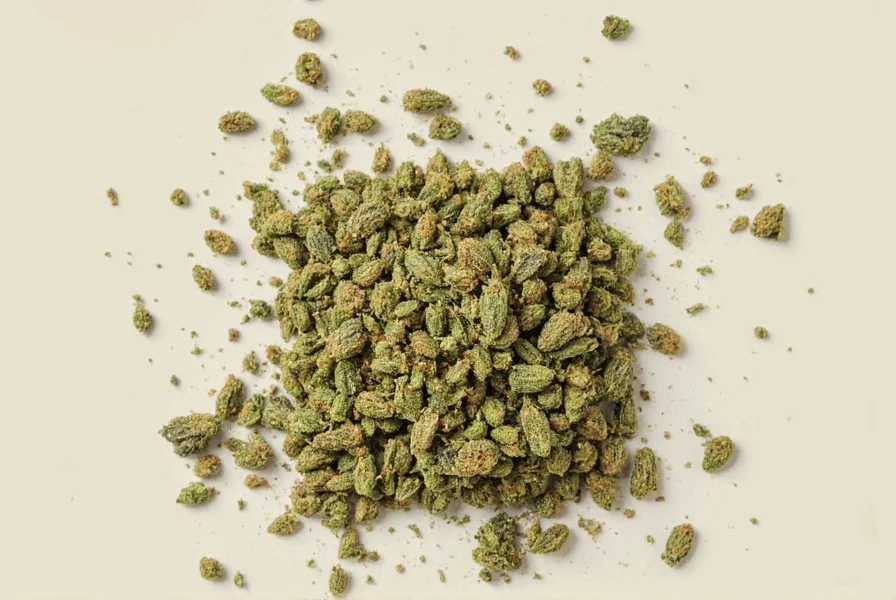
Frequently Asked Questions
Can I use bulk sage for medicinal purposes?
Yes, sage is commonly used in herbal teas and tinctures. According to the National Institutes of Health (NIH), consult a healthcare provider before using sage for therapeutic reasons, especially in large doses or during pregnancy.
Is fresh sage better than bulk dried sage?
Fresh sage has a brighter flavor, but dried sage is more concentrated and lasts longer. Bulk dried sage is ideal for everyday use and cooking convenience. The USDA confirms dried herbs maintain potency better for storage.
How much bulk sage should I buy?
For a household of 2–4 people who cook regularly, 4 oz (about 1/4 cup) of dried sage can last several months to a year depending on usage.
Can I grow my own sage and dry it in bulk?
Absolutely! Sage grows easily in well-drained soil and sunny conditions. Harvest before flowering, dry in bunches indoors, and store in jars for homemade bulk supply. The American Horticultural Society recommends this method for home gardeners.
Where can I buy quality bulk sage?
You can find quality bulk sage at local co-ops, health food stores, farmers markets, and online retailers. Look for organic options with clear information about origin and drying methods. Many grocery stores with bulk sections also carry sage. The buying guide earlier in this article details specific recommended products for different needs.
How do I know if my bulk sage has gone bad?
Sage has gone bad if it has lost its aroma completely, changed color to brown or yellow, developed a musty smell, or shows signs of mold or insects. Properly stored dried sage should maintain good quality for 1-2 years. When in doubt, give it a sniff test - if you can't detect the characteristic earthy, minty aroma, it's time to replace it. The FDA provides guidelines for herb storage safety.
Conclusion
Investing in sage bulk is a smart move for anyone passionate about cooking, saving money, or exploring natural remedies. With the right storage techniques and a bit of creativity, you’ll find yourself reaching for sage more often than you ever imagined.
From cozy autumn stews to fragrant holiday stuffings, sage brings warmth and depth to your kitchen repertoire. The historical evolution of bulk purchasing and clear understanding of context boundaries ensure you maximize its potential while avoiding common pitfalls.
So go ahead — grab a jar of bulk sage, label it lovingly, and let the culinary magic begin!
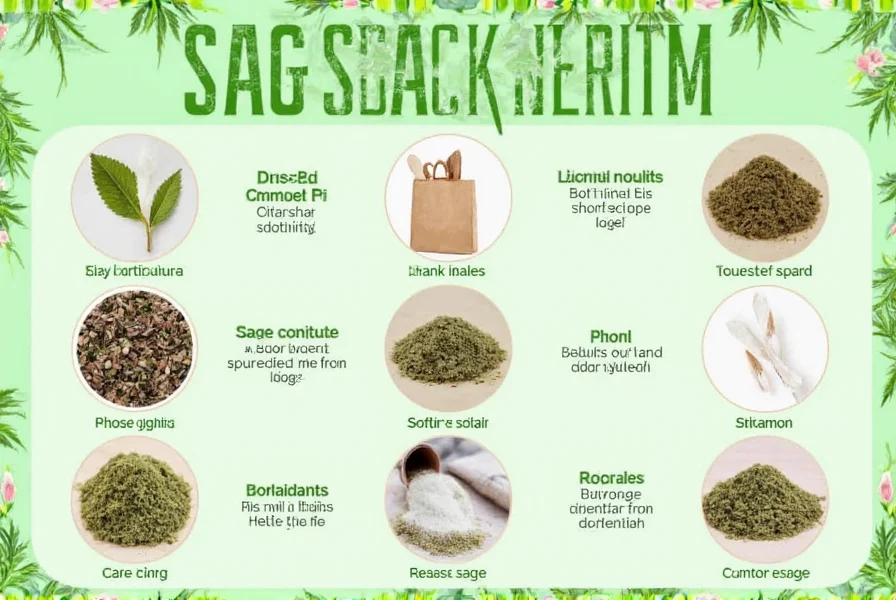

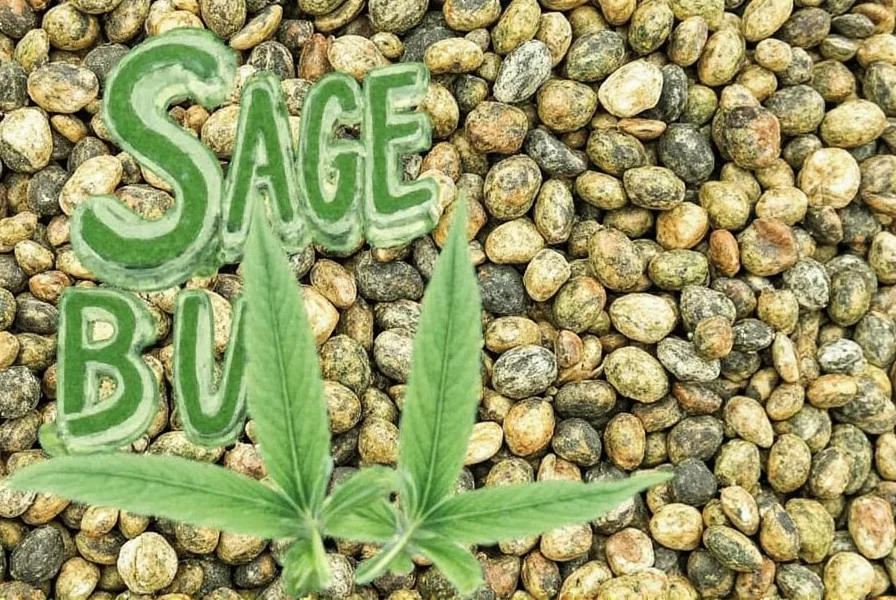









 浙公网安备
33010002000092号
浙公网安备
33010002000092号 浙B2-20120091-4
浙B2-20120091-4